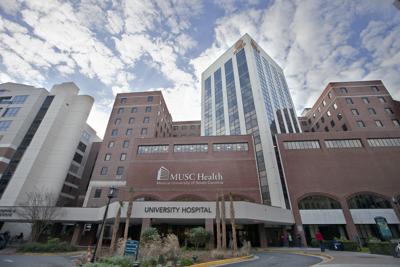The Medical University of South Carolina adds a $5.6 billion punch to the state's economy, a 47 percent gain from a previous impact estimate four years ago, according to a new report.
The majority of the increase since 2016 was attributed to MUSC's purchase of four hospitals in 2019.
With five major health care campuses and a far-reaching network of smaller medical offices and other services, the state system is comparable in size in South Carolina only to Prisma Health, a private-sector provider that operates 14 hospitals in the Midlands and Upstate.
MUSC now employs about 18,000 workers, roughly 1,000 more than four years ago. The institution also supports an additional 10,000 jobs through its supply chain, according to the economic study by the University of South Carolina's Moore School of Business.
That reach translates to $3 billion in direct impact, and another $2.6 billion in trickle-down effects.
Joey Von Nessen, a USC research economist who created the latest report for MUSC, presented his findings to the board of trustees Friday. He found 11 percent of the jobs in the Charleston area can be traced directly to MUSC.
Von Nessen said MUSC's benefits to the community extend beyond medical care. He described the system as an "anchor" of South Carolina's knowledge economy, which generally refers to sought-after higher-paying industries in science, technology and health care that tend to accelerate economic growth.
"That has all sorts of positive spillover effects," Von Nessen said.
MUSC's growth also has helped expand the broader health care industry in the state. The entire medical sector accounted for a 6.9 percent of the South Carolina economy last year, up from 5.4 percent in 2001.
The size of MUSC's economic contribution has been steadily growing over time.
A separate report generated by the Charleston Metro Chamber of Commerce that evaluated the hospital system's impact in 2016 pegged the figure at $3.8 billion. And a 2002 report by the College of Charleston reported MUSC's impact at $1.6 billion.
The pandemic has thrown a wrench into the hospital system's financial engine in some ways — a hiring freeze is still in place at the medical school is one example. Also, MUSC is awaiting government reimbursement for a portion of its COVID-19 expenditures.
Asked how MUSC stacks up compared to other research institutions in South Carolina, Von Nessen said its status as a university, hospital and general health care provider means it stands out from the pack in some respects.
The system's role to the state economy took on a new dimension in 2019 when it purchased four hospitals in mostly rural areas of South Carolina. The acquisitions increased MUSC's impact estimate by $804 million.
MUSC now supports about 7 percent of the employment base in the four counties where those hospitals are located — Chester, Lancaster, Marion and Florence — either directly or through suppliers and contractors.
Most of the financial impact — $4.5 billion, or about 81 percent — is concentrated in the Charleston area, where MUSC is based, according to the study.
Von Nessen said he expects the system's status as major economic driver will continue to grow, because as the South Carolina population ages, the demand for medical services will climb.
"Clearly health care is a sizable portion of our economy already, but it's also growing, and it's growing faster in South Carolina than in other places," he said.



